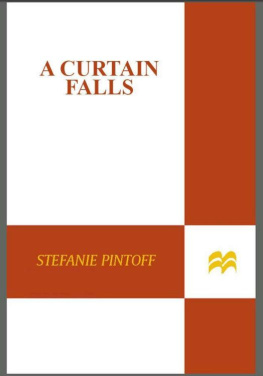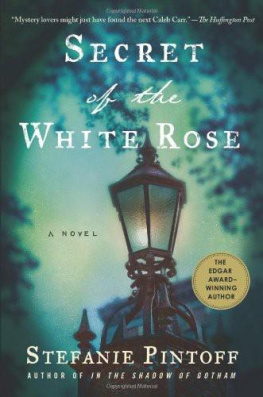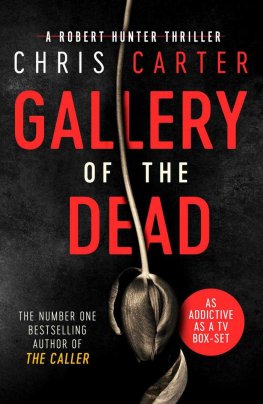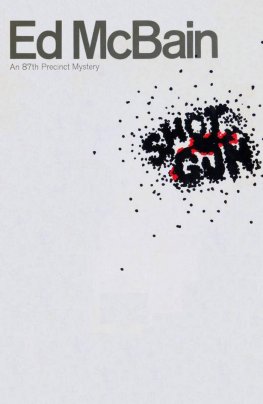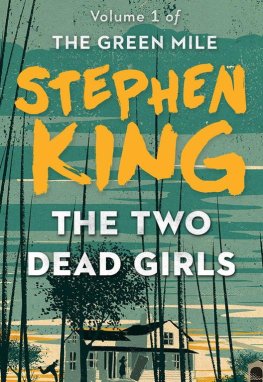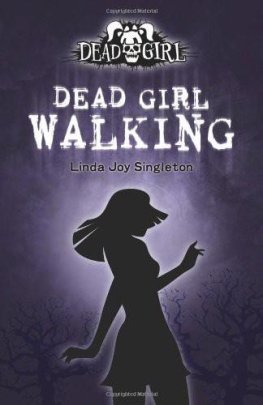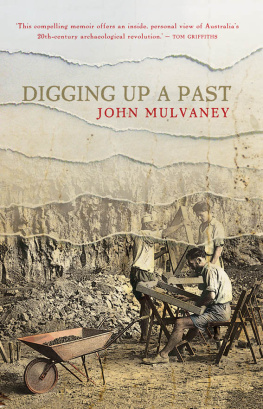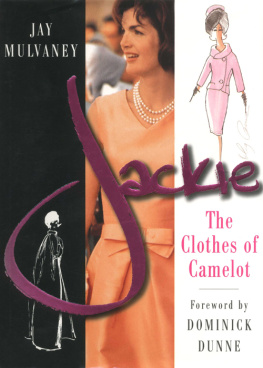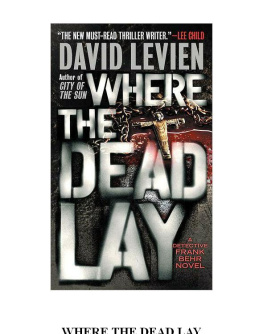A CURTAIN
FALLS
ALSO BY STEFANIE PINTOFF
In the Shadow of Gotham
A CURTAIN
FALLS
Stefanie Pintoff

Minotaur Books
New York
This is a work of fiction. All of the characters, organizations, and events portrayed in this novel are either products of the authors imagination or are used fictitiously.
A CURTAIN FALLS. Copyright 2010 by Stefanie Pintoff. All rights reserved. Printed in the United States of America. For information address St. Martins Press, 175 Fifth Avenue, New York, N.Y. 10010.
www.minotaurbooks.com
Library of Congress Cataloging-in-Publication Data
Pintoff, Stefanie.
A curtain falls / Stefanie Pintoff1st ed.
p. cm.
ISBN 978-0-312-58396-5
1. PoliceNew York (State)Fiction. 2. GirlsCrimes against
Fiction. 3. Serial murder investigationFiction. I. Title.
PS3616.I58C87 2010
813'.6dc22
2010008708
First Edition: May 2010
10 9 8 7 6 5 4 3 2 1
For Craig and Maddie, without whom...
ACKNOWLEDGMENTS
No book comes into being without the support of many people, each of whom has my sincere thanks. I owe my editor, Kelley Ragland, and her keen eye a great debt. My agent, David Hale Smith, is an invaluable source of encouragement and sound advice. Many thanks as well to so many others Ive gotten to know at Minotaur: Andy Martin, Matt Martz, Hector DeJean, Anne Gardner, copy editor Fran Fisher, and all others who have played a role in bringing this book to publication.
I also owe much to Natalie Kapetanios Meir for her insightful feedback and unwavering encouragement as well as to Karen Odden and Mark Longaker, for their exceptional attention to detail. Thanks to Alison Sheehy for things theatrical and to Luci Hansson Zahray for things poisonous. As always, the staff at the New York Public Library and Bobst Library at New York University have been wonderful.
Special thanks to Allen and Bobbi Pintoff, as well as Julie Torre; each has truly gone above and beyond. I also am grateful to James Hackett and Theresa Alvarez Hackett, Tim and Jill Vincent, April Longaker, Julie Cameron, Ed and Betty Smith, Chuck and Dotty Greenberg, and Scott and Erika Pintoff for going the extra mile in support of my career. Thanks also to all other friends and family who have done so much for me.
Most of all, thank you to Craig, my best friend and writing partner without whom this book wouldnt be possible.
PART
ONE
Crime is terribly revealing. Try and vary your methods as you will, your tastes, your habits, your attitude of mind, and your soul is revealed by your actions.
Agatha Christie
Friday
March 16, 1906CHAPTER 1
Criminal Courts Building, opposite the Tombs
Some will claim you can cut to the truth from the look in a persons eye.
I cannot. But with solid evidence, I can expose what might otherwise deceive. Usually, that is. For there are people so practiced in the art of deception that, no matter the evidence stacked against them, they persuade the most skeptical among us to believe a fairy tale. And no one had done it better than the woman who now sat at the massive wooden table opposite the judge, her thin hands pressed palm to palm as if in prayer, awaiting the jurys verdict.
For three days, I had marveled at her performance. She had dressed the part to perfection with a white lace-edged shirtwaist, a black gored skirt, button boots, and kid gloves. The effect was stylish yet conservative and sober as befit a lady in mourning for her husband. As she answered each question on the witness stand, her manner had been shy and demure. Her voice, always tremulous, suggested she was just on the verge of tears. And throughout, she displayed a wide-eyed innocent stare, as though she could not quite believe what was happening to her. But what was truly an art was the timing with which her blue eyes watered just before she gazed through long, dark lashes toward the twelve men on the jury. Her every gesture was designed to convince them of one important truth: that she was completely incapable of the cold-blooded murder for which she stood accused.
Her defense attorneys, two oversized men wearing ill-fitting gray suits, flanked her closely. Too closely, in fact. Next to them, she appeared frail, helpless, and vulnerable. I had no doubt that was exactly her plan.
What would the jury believe: the evidenceor the story the woman had spun?
Her case should have been a simple one, open and shut. She was accused of first-degree murder. The prosecutors argument had been persuasive, outlining how she had tired of her husband and desired her freedom. Others might have opted for divorce, but she had chosen a less conventional method and replaced her husbands bottle of Emersons Bromo-Seltzer with cyanide of mercury. And so, on the occasion of his last headache, he had reached into his medicine cabinet and taken poison instead of a cure. After four days of tremendous pain and violent retching, he had died.
It could not have been an easy death to witness. It should not have rested easily on her conscience.
Gentlemen of the jury, have you reached a verdict? The judge intoned the words the law required of him.
The woman twisted a gloved finger.
We have, Your Honor, the foreman replied, his voice low and grave.
Defendant, please rise, said the judge.
Her defense attorneys pulled her to her feet after she fell against the table, seemingly drained of her last ounce of strength. Her pale face beseeched the jury foreman for mercy.
He returned her gaze without self-consciousness, and I knew the verdict at once even before the words not guilty sounded throughout the courtroom.
Amid gasps of surprise and murmuring voices, I turned away and quickly exited the rear of the building, eager to reach the street before the shouting crowds and hordes of news reporters swallowed me whole.
It was a bitter disappointment. I had arrested her and secured the incriminating evidence against her: the testimony of the doctor who detected the strong smell of almond; the rec ords of the pharmacist who had sold her the poison; the words of the friend in whom she had confided her marriage troubles. The evidence was circumstantial, but solid. I had offered the truth, and her performance had refuted it. I could do no more.
My feet landed with a heavy thud on each step as I ran down the stairs toward Franklin Street. It would have been a loss, of course, no matter the verdict. Justice was imperfect, even when the verdict was guilty. No trial could restore the dead to life. Or change the fact that, in this case, a nine-year-old girls future had been forever altered by the trial of her mother, the death of her father.
What mattered was the risk this woman posed in the months and years to come. Would she kill again? Or had she been so thoroughly scared by her close call with the executioner, and her brief imprisonment in the Tombs, that she would now abide by the law? It was possible.
But the act of shedding blood once made it easier to do twice or so I believed. I had never taken the life of another, though I had certainly known my share of danger. It was a line I hoped never to cross.
Detective! Detective Ziele! The voice that called out to me was loud and self-important. A sergeant huffed behind me, his large baby face lined with beads of sweat as he tried to catch up. As I stopped to wait for him, I realized I must have been practically sprinting as I made my way toward the City Hall subway station.
Captain Mulvaney told me youd be finishing up at the courthouse. He sent me to give you the message that youre needed up-town.
Next page
